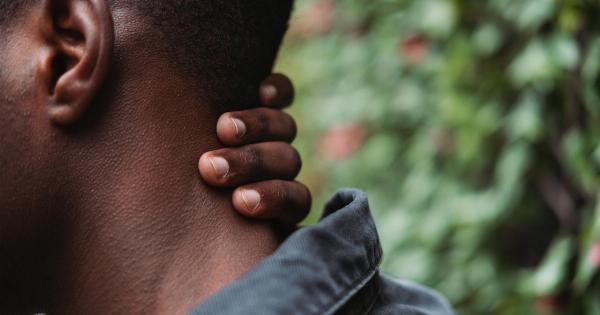Migraine is a severe headache that can last for several hours or days. It can cause nausea, vomiting, sensitivity to light and sound, and intense pain in one or both sides of the head.
Migraines can be debilitating and can greatly affect the quality of life. While there is no cure for migraines, there are several ways to alleviate the pain and manage the symptoms. Here are six ways to help you cope with migraines:.
1. Identify Triggers
Migraines are often triggered by certain factors such as stress, hormonal changes, lack of sleep, bright lights, loud noises, and certain foods and drinks. Identifying your triggers can help you avoid them and prevent migraines from occurring.
Keep a journal to track your migraines and note down any triggers that may have caused them. Once you identify your triggers, try to avoid them as much as possible.
2. Take Medications
There are several over-the-counter and prescription medications that can help alleviate migraine symptoms. Over-the-counter pain relievers such as ibuprofen, aspirin, and acetaminophen can help reduce the pain.
Prescription medications such as triptans, ergots, and anti-nausea drugs can help alleviate the pain and other symptoms of migraines. Consult your doctor to find out which medication is best for you.
3. Apply Cold Compresses
Applying cold compresses to the forehead, temples, and neck can help alleviate migraine pain. The cold temperature can help constrict the blood vessels, which can reduce the pain.
Use a cold pack or wrap ice cubes in a towel and apply it to the affected area for 15-20 minutes.
4. Practice Relaxation Techniques
Stress is a common trigger for migraines. Practicing relaxation techniques such as deep breathing, meditation, yoga, and massage can help reduce stress and prevent migraines. Find a quiet place and take deep, slow breaths for a few minutes.
Close your eyes and visualize a relaxing scene such as a beach or a sunset. Practicing relaxation techniques regularly can help prevent migraines from occurring.
5. Stay Hydrated
Dehydration is another common trigger for migraines. Make sure you drink plenty of water throughout the day to stay hydrated. Avoid drinking alcohol and caffeinated drinks such as coffee, tea, and soda, which can dehydrate you.
If you feel a migraine coming, drink a glass of water or a sports drink to rehydrate your body.
6. Get Enough Sleep
Lack of sleep is also a common trigger for migraines. Make sure you get enough sleep every night. Aim for at least eight hours of sleep every night. Stick to a regular sleep schedule and try to go to bed and wake up at the same time every day.
Avoid napping during the day, especially in the afternoon or evening, as it can interfere with your sleep at night.
Conclusion
Migraines can be a debilitating condition that can greatly affect the quality of life. However, with proper management, you can alleviate the pain and manage the symptoms.
Identify your triggers, take medications, apply cold compresses, practice relaxation techniques, stay hydrated, and get enough sleep. Consult your doctor if your migraines are severe, frequent, or interfering with your daily activities. With these tips, you can take control of your migraines and enjoy a better quality of life.






























